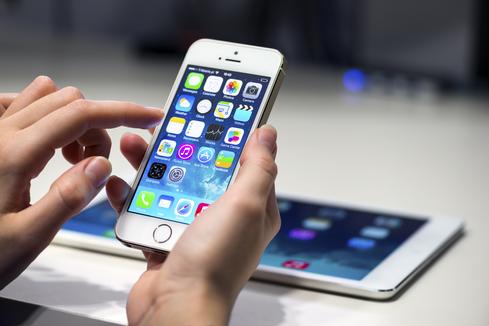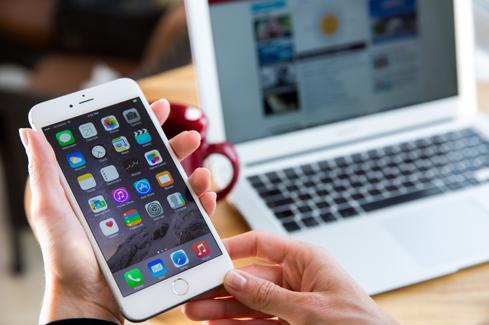Apple's iOS and Google's Android leave little more than a pittance for Windows and BlackBerry, according to new estimates from Gartner.


11 iPhone Apps To Get Healthy, Wealthy, And Productive
11 iPhone Apps To Get Healthy, Wealthy, And Productive (Click image for larger view and slideshow.)
Smartphone sales closed out 2015 with a modest gain over 2014, says Gartner. Phone makers shipped 403 million units during the fourth quarter, pushing the full-year total to about 1.4 billion. Those figures represent a 9.7% and 14.4% improvement, respectively, when compared to 2014, but 2015 saw the slowest growth rate since 2008.
Samsung shipped 83.4 million devices during the fourth quarter, compared to Apple's shipments of 71.5 million. Huawei followed with 32 million, Lenovo shipped 20 million, and Xiaomi shipped 18.3 million. These top five vendors owned 20.7%, 17.7%, 8%, 5%, and 4.5% of the smartphone market, respectively. The "others" grouping, which contains Microsoft, LG, Sony, Alcatel, and ZTE, was responsible for combined shipments totaling 177 million.
The yearly totals are significant. Samsung, for example, pushed out 320 million devices, giving it 22.5% of the market for 2015. Apple followed with shipments of 225.8 million iPhones and 15.9% of the market. Huawei's total for the year was 104 million, with 7.3% of the market, while Lenovo shipped 72.7 million for 5.1% of the market, and Xiaomi shipped 65.6 million devices for 4.6% of the market.
The platform numbers paint a bleak picture for the world's fledgling operating systems.
With quarterly shipments of about 320 million, Google's Android owned 80.7% of the smartphone market during the fourth quarter. Apple's iOS, which shipped on 71.5 million handsets, was a distant second with 17.7% of the market. Together, Android and iOS have a stranglehold, with 98.4% of the market. Compared to 2014, Apple lost some share to Google by the end of 2015.
"Android benefited from continued demand for affordable smartphones and from the slowdown of iOS units in the premium market in the fourth quarter of 2015," Roberta Cozza, research director at Gartner, wrote in the Feb. 18 report.
Microsoft's Windows platform has very nearly fallen off the map. Gartner estimates Microsoft shipped about 4.4 million Windows Phones during the fourth quarter, giving it just 1.1% of the market. That's down from shipments of 10.4 million and a marketshare of 2.8% in the year-ago period.
[Read more about Apple and the FBI.]
BlackBerry fared worse. The one-time market leader shipped just 900,000 BlackBerries during the fourth quarter, giving it a meager 0.2% of the smartphone market.
Gartner says inexpensive phones sold in emerging markets were responsible for much of the industry's overall growth, and Android's upswing in particular.
"An aggressive pricing from local and Chinese brands in the mid-to-low-tier segments in the emerging markets led to consumers upgrading more quickly to affordable smartphones," Gartner Research Director Anshul Gupta wrote in the report.
Gartner didn't offer a prediction for 2016, but the numbers are likely to follow the same path.
What have you done to advance the cause of Women in IT? Submit your entry now for InformationWeek's Women in IT Award. Full details and a submission form can be found here.
About the Author(s)
You May Also Like







